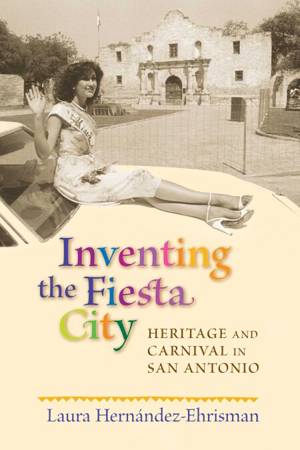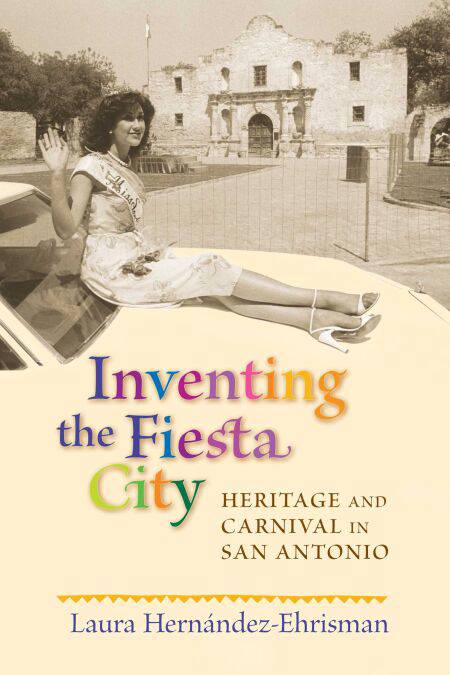
- Afhalen na 1 uur in een winkel met voorraad
- Gratis thuislevering in België vanaf € 30
- Ruim aanbod met 7 miljoen producten
- Afhalen na 1 uur in een winkel met voorraad
- Gratis thuislevering in België vanaf € 30
- Ruim aanbod met 7 miljoen producten
Zoeken
Inventing the Fiesta City E-BOOK
Heritage and Carnival in San Antonio
Laura Hernández-Ehrisman
E-book | Engels
€ 31,30
+ 31 punten
Omschrijving
Fiesta San Antonio began in 1891 and through the twentieth century expanded from a single parade to over two hundred events spanning a ten-day period. Laura Hernández-Ehrisman examines Fiesta's development as part of San Antonio's culture of power relations between men and women, Anglos and Mexicanos.
In some ways Fiesta resembles hundreds of urban celebrations across the country, but San Antonio offers a unique fusion of Southern, Western, and Mexican cultures that articulates a distinct community identity. From its beginning as a celebration of a new social order in San Antonio controlled by a German and Anglo elite to the citywide spectacle of today, Hernández-Ehrisman traces the connections between Fiesta and the construction of the city's tourist industry and social change in San Antonio.
In some ways Fiesta resembles hundreds of urban celebrations across the country, but San Antonio offers a unique fusion of Southern, Western, and Mexican cultures that articulates a distinct community identity. From its beginning as a celebration of a new social order in San Antonio controlled by a German and Anglo elite to the citywide spectacle of today, Hernández-Ehrisman traces the connections between Fiesta and the construction of the city's tourist industry and social change in San Antonio.
Specificaties
Betrokkenen
- Auteur(s):
- Uitgeverij:
Inhoud
- Aantal bladzijden:
- 248
- Taal:
- Engels
Eigenschappen
- Productcode (EAN):
- 9780826343123
- Verschijningsdatum:
- 21/10/2010
- Uitvoering:
- E-book
- Beveiligd met:
- Adobe DRM
- Formaat:
- ePub

Alleen bij Standaard Boekhandel
+ 31 punten op je klantenkaart van Standaard Boekhandel
Beoordelingen
We publiceren alleen reviews die voldoen aan de voorwaarden voor reviews. Bekijk onze voorwaarden voor reviews.











